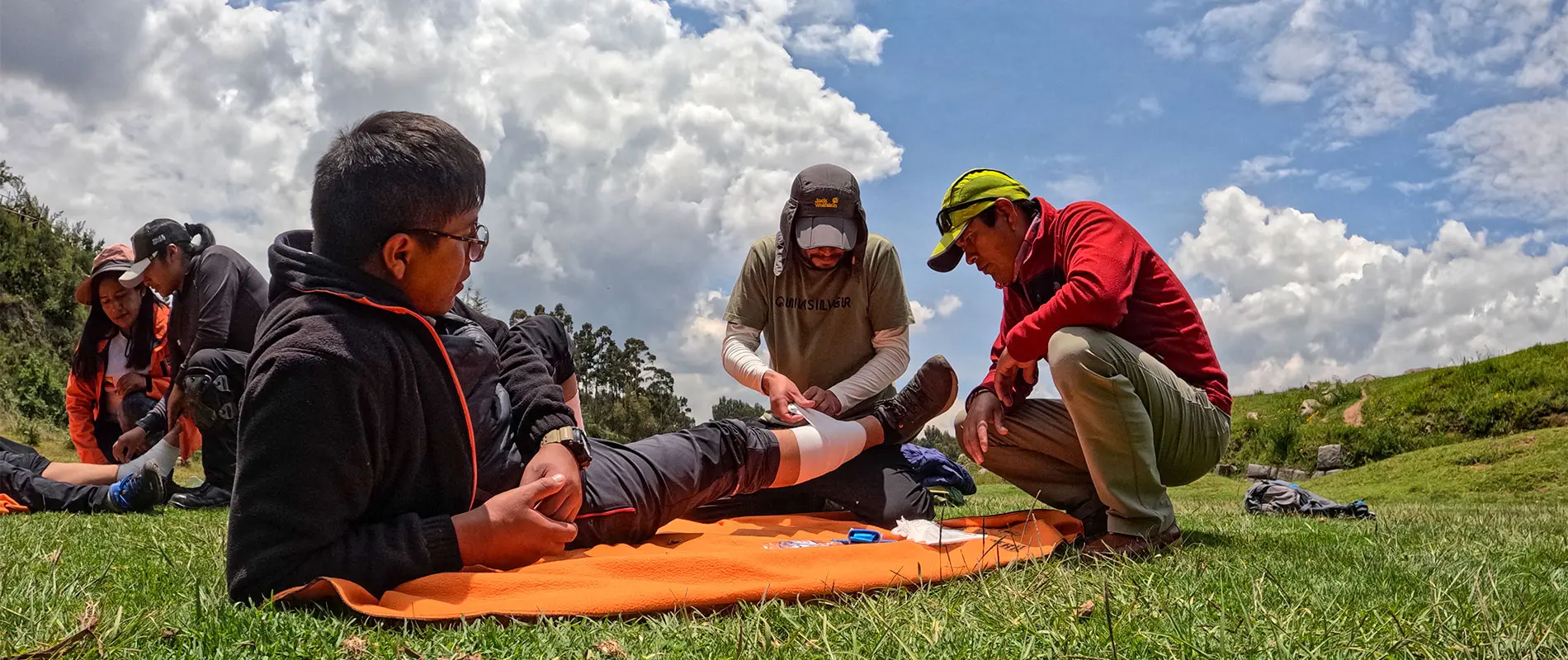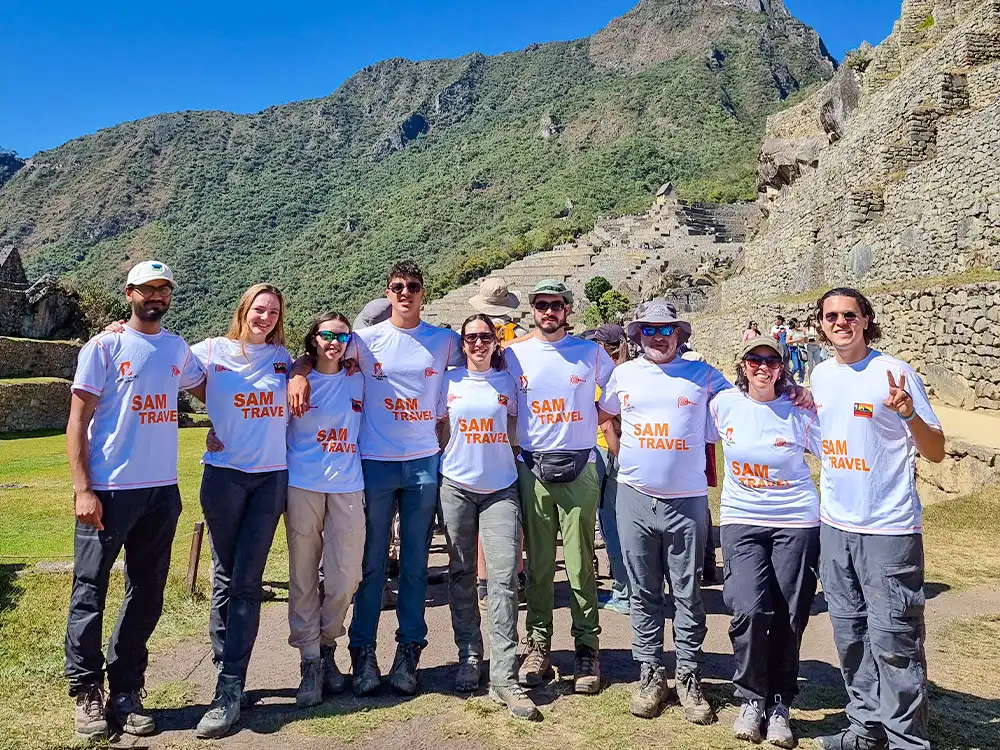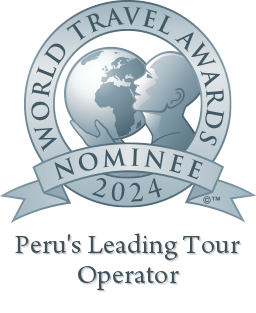SAM Travel Peru takes seriously the safety and health of our clients. Professionals certified in First Aid, Altitude Sickness, and CPR, we train our guides in emergency first aid and CPR. It is a requirement for all of our guides to go through these training programs. See below the Emergency Preparation SAM Travel.
On all of our trekking tours, we carry oxygen tanks for altitude sickness and first aid kits. The first aid kits are created by our medical staff for high altitude trekking; and on alternative trekking tours, we also have rescue horses. Every guide carries a satellite phone, and emergency radio transmitters, in order to communicate with the home office or emergency services. If one of our clients gets ill, has altitude sickness, or gets hurt in an accident, we are prepared to care for their injuries or illness and evacuate them if needed.
It is important that your guide is informed of any medical issues allergies or medicines you are taking before your tour, or at least at your briefing.
Our Guides Have Been Trained On:
- How to recognize and assist a client with altitude sickness
- How to evaluate and treat injuries
- When and how to use the oxygen tank properly
- CPR
- Wilderness rescue and evacuation practices
Emergency Preparedness, Safety on the Trail, and Evacuation Plans
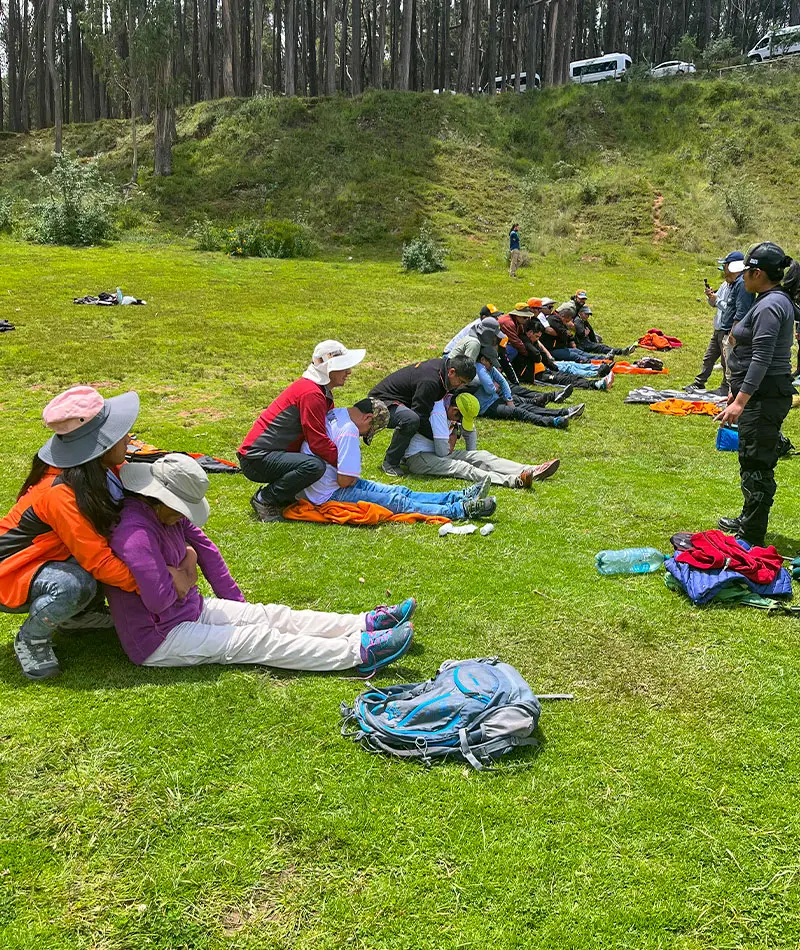
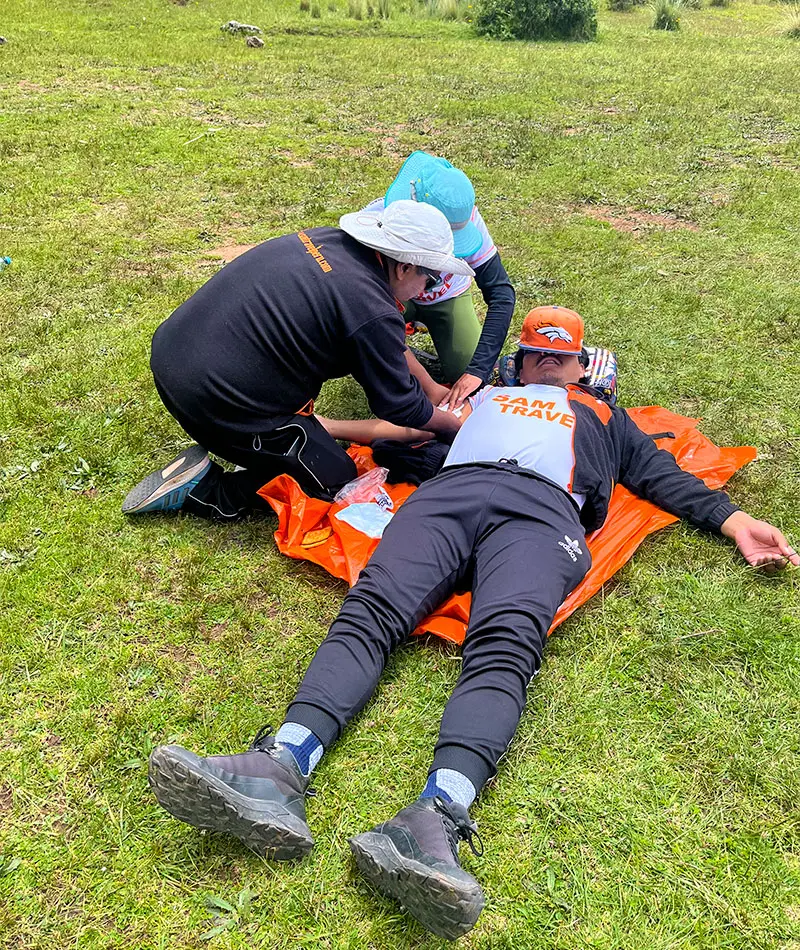
Wilderness Trekking
Wilderness trekking and camping are a great experience in the Andes Mountains. Our guides are trained and have years of experience in the Andes and know how to anticipate any potential problems that might occur. Safety first is the prime goal of SAM Travel Peru..
Trail Safety
Wilderness trekking and camping are a great experience in the Andes Mountains. Our guides are trained and have years of experience in the Andes and know how to anticipate any potential problems that might occur. Safety first is the prime goal of SAM Travel Peru..
Safety in Lightning Storms
Wilderness trekking and camping are a great experience in the Andes Mountains. Our guides are trained and have years of experience in the Andes and know how to anticipate any potential problems that might occur. Safety first is the prime goal of SAM Travel Peru..
Pure Drinking Water
A constant supply of pure drinking water is essential. SAM Travel Peru makes sure everyone on the trip has access to clean water for drinking and cooking. All water is filtered, boiled by our chef, and cooled, to provide our trekkers with adequate drinking water. Your water bottles will be filled after each meal, three times per day.
Wilderness Evacuation Plan and First Aid
Our guides are certified in First Aid, CPR, and trained on when and how to use oxygen tanks. Furthermore, SAM Travel guides know what measures to take and how to evacuate ill or hurt trekkers. There is always an evacuation plan for each trail, the Inca Trail and Alternative Trails. On Alternative Trails there are emergency horses that can be used by people struggling on the trail, with altitude sickness, and for evacuation purposes. Every guide also caries satellite phones and emergency radio transmitters to be able to communicate with the home office and emergency services.
